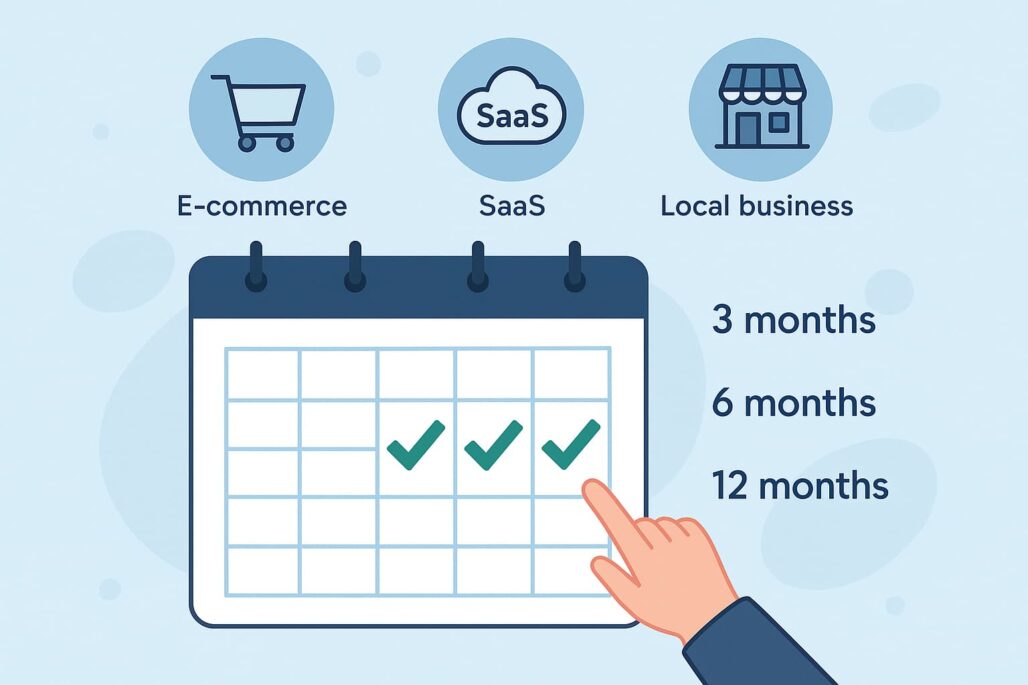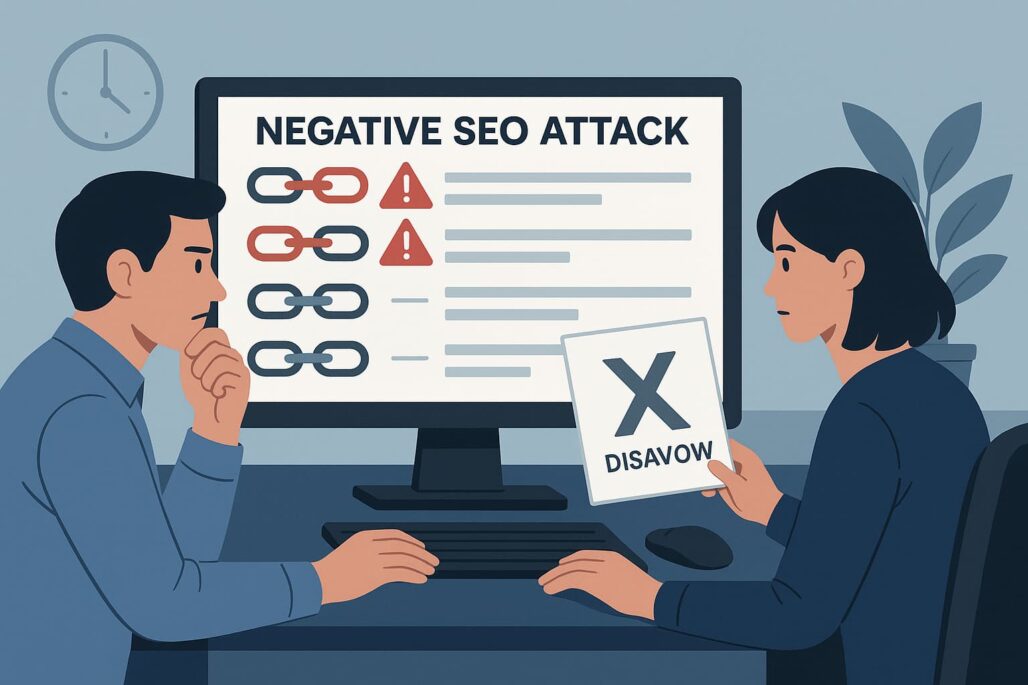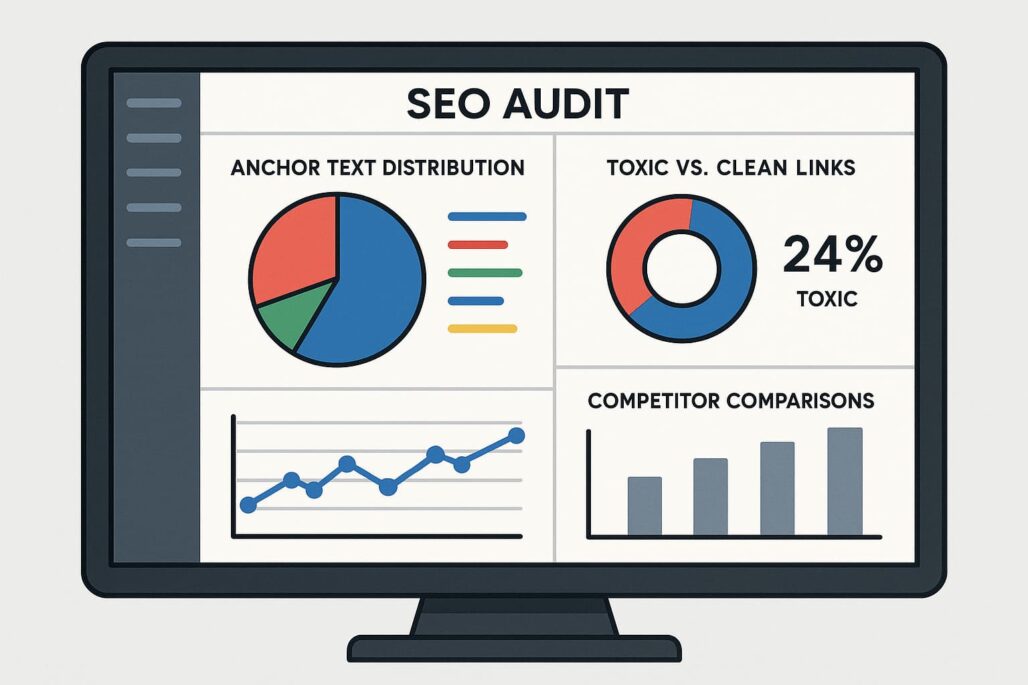Link building is a critical part of SEO, but without regular audits, your backlink profile can become ineffective—or worse, harmful. A link building audit examines the quality, relevance, and authority of your backlinks, identifies toxic links, and helps recover lost opportunities. But how often should you conduct one?
What Does a Link Building Audit Include?
A thorough link-building audit typically involves:
- Link Discovery – Finds all backlinks using reliable tools
- Quality Assessment – Checks link authority and spam risk
- Link Recovery – Restores valuable broken/lost links
- Competitor Insights – Discover which valuable links your competitors have that you’re missing
- Spam Protection – Find and remove toxic backlinks that could hurt your rankings
- Link Growth Plan – Get actionable strategies to build high-quality, relevant links
Recommended Audit Frequency by Website Type

Different types of websites require different audit schedules based on their link acquisition speed, industry competition, and SEO risks.
1. E-commerce Sites
E-commerce sites frequently have thousands of product pages that attract a large amount of backlinks, some of which may be spammy or low-quality. Because these sites frequently run specials and collaborations, audits every three to four months are perfect for preventing toxic link buildup.
2. SaaS Companies
SaaS businesses rely heavily on organic traffic and content marketing, resulting in consistent backlink growth. Because their rankings are so important for lead generation, audits every 4-6 months help maintain a healthy link profile while also discovering fresh guest posts or PR possibilities.
3. Local Businesses
Local businesses typically have fewer backlinks but may face spammy directory listings or irrelevant citations. An annual audit is usually sufficient unless they’re expanding regionally or seeing ranking fluctuations.
4. Large Enterprise Sites
Enterprise websites with multiple subdomains and international versions need quarterly audits due to their complex backlink structures. They’re also more likely to be targeted by negative SEO, making frequent checks essential.
Why Regular Audits Matter
A healthy backlink profile is necessary for good search rankings. Many sites focus on creating content and getting new links, but ignore their existing backlinks. Regular audits check your backlinks to find and fix problems before they hurt your rankings.
Prevents Search Engine Penalties
Search engines don’t simply overlook spammy backlinks—they can actually penalize your site for having them. Google’s algorithms are sophisticated enough to detect unnatural or manipulated links. If they flag too many, your rankings could drop, or worse, you might face a manual penalty.
That’s why regular backlink checkups are so important. They help you:
- Spot toxic links before they cause damage;
- Remove or disavow problematic connections;
- Stay on Google’s good side.
Think of it like preventive medicine for your website—a little regular maintenance helps you avoid painful (and expensive) recovery efforts down the road. By keeping your backlink profile clean, you’re not just avoiding trouble; you’re giving your site its best chance to rank well.
Recover Lost Link Equity & Boost SEO Performance
Broken backlinks from site migrations, removed content, or structural changes may all have a negative impact on your SEO over time. These lost links weaken your domain authority and waste key ranking power. A comprehensive audit will help you identify missed opportunities, contact webmasters for reinstatement, and discover new strategies to regain lost wealth.
Protect Your Website from Dirty SEO Tricks
In cutthroat industries, some competitors won’t play fair—they might try to tank your rankings by pointing shady backlinks your way. The solution? Routine checkups. By catching and disavowing these toxic links early, you can stop them from dragging your search rankings down. And timing matters—wait too long, and the damage to your site’s reputation could stick.
Optimizes Future Link Building Strategies
Audits provide data-driven insights into which sorts of connections are most effective for your unique niche. Analyzing your backlink profile’s strengths and flaws allows you to:
- Identify the most authoritative linking domains in your industry.
- Understand which content types attract quality backlinks naturally.
- Identify trends in effective link locations.
- Don’t waste resources on unsuccessful link-building strategies.
Maintains Competitive Advantage
Regular audits help you stay ahead of competitors by:
- Monitoring their linking strategies through competitive analysis;
- Identifying new link opportunities before competitors do;
- Ensuring your backlink profile remains stronger than competing sites.
Improves Overall Site Health
A clean backlink profile helps search engines crawl and index content more effectively. By deleting toxic links and preserving high-quality connections, search bots can better assess your site’s authority and relevancy.
The frequency of these audits should be equal to your site’s size, industry competitiveness, and growth rate. Most websites can be maintained effectively with quarterly audits, while high-risk or fast-increasing sites may require monthly evaluations.
How Often Should You Audit Your Backlinks?
The optimal frequency relies on numerous factors:
1. New or Fast-Growing Websites
Keep a close eye on young or rapidly expanding sites with quarterly backlink checkups. When you’re scaling quickly, sketchy links can slip through—catching them early saves you from future headaches.
2. Established Sites with Consistent Traffic
If your website’s been around the block, checking backlinks twice a year usually does the trick. But if your rankings suddenly drop or you suspect foul play, don’t wait—audit immediately.
3. Sites Bouncing Back from Google Penalties
Recovering from a penalty? Stay extra vigilant with monthly audits until you’re back in good standing. This helps clean up existing toxic links and stops new ones from derailing your progress.
4. Cutthroat Industries (Finance, Health, Legal, etc.)
In competitive fields where competitors play dirty, quarterly audits are your best defense. Staying proactive keeps your backlink profile clean and your rankings safe from sabotage.
5. After Major SEO Campaigns
If you’ve recently run an aggressive link-building campaign, audit your links within 1-2 months to ensure no low-quality links slipped through.
Signs You Need an Immediate Link Audit

Regular link audits should be part of your SEO maintenance, but some situations require urgent attention. If your rankings drop suddenly for multiple keywords without algorithm updates or technical changes, this often means backlink problems. The same applies when your traffic keeps decreasing even though you maintain content quality and publishing frequency—this could mean that toxic backlinks are hurting your domain authority or valuable links have been lost.
Google Search Console warnings about “unnatural links” are serious because they show Google found questionable linking patterns that may lead to penalties. You should also be concerned if you suddenly get many backlinks from unknown domains, foreign sites unrelated to your business, or known link farms—these could be negative SEO attacks or results of poor link building.
If competitors with similar or worse content keep ranking higher than you, your backlinks likely need improvement. Other important warning signs include:
- Major changes in anchor text (too many commercial keywords suddenly).
- Your site is appearing in spam directories or irrelevant blog networks.
- Stable pages are losing rankings while new content doesn’t perform.
- Finding your links on penalized or removed websites.
Waiting to fix these problems makes them worse. Toxic links become harder to remove over time. Missing high-quality links means lost SEO value. Worst of all, these issues can trigger Google filters that take months to recover from, while competitors strengthen their positions.
When you see these signs, get a professional audit immediately. It will show if you have toxic links, lost links, negative SEO, or just need backlink profile updates. Acting fast can prevent serious ranking drops, while delaying may mean a long recovery process.
Choosing a Reliable Link Audit Service
Not all link audits provide the same level of value. A quality service should meet these key requirements:
- Cross-check backlinks using Ahrefs, Moz & Majestic for accuracy;
- Simple reports flagging toxic vs. healthy links with fixes;
- Disavow file help when links can’t be removed manually;
- Smart strategies to build better links moving forward.
For example, 3XE Digital’s link audit service thoroughly scans your backlinks using multiple SEO tools, identifies toxic links, and provides manual removal outreach or a disavow file. Their analysis includes anchor text distribution and competitor benchmarking to uncover gaps and opportunities. Finally, they deliver actionable recommendations to strengthen your link profile and boost organic rankings—all tailored to your site’s specific needs.
Risks of Infrequent Audits

Skipping regular link audits can lead to serious SEO problems, including:
1. Accumulated Toxic Links
Those spammy backlinks don’t just sit there—they multiply quietly like digital weeds. The longer you ignore them, the more they poison your site’s reputation. By the time you notice, you could be facing a massive cleanup job; imagine manually disavowing hundreds of sketchy links while your rankings suffer.
2. Missed Link Opportunities
While you’re not auditing, competitors actively secure high-quality backlinks from industry authorities and emerging sources. You’ll miss guest post opportunities, broken link building chances, and new platforms for earning links, creating a competitive gap that’s difficult to close later.
3. Inconsistent Anchor Text Profiles
Without regular checks, your anchor text distribution can become unbalanced with too many exact-match commercial keywords. This unnatural pattern triggers Google’s spam filters, potentially leading to algorithmic penalties that suppress your rankings across key terms.
4. Lost Link Equity from Broken Links
Valuable backlinks disappear over time due to site migrations, content removals, or domain changes. Each lost link from an authoritative source weakens your rankings. Without audits, you could lose 20-30% of your link equity annually without realizing it.
Final Thoughts
Regular link audits are crucial for maintaining a strong backlink profile and preventing SEO damage. Audit frequency should match your site’s needs—quarterly for new sites, every 6 months for established ones, and monthly for high-risk cases. Watch for red flags like ranking drops or unnatural link warnings that require immediate attention. Professional audits help identify toxic links, recover lost opportunities, and improve your linking strategy. By making audits a consistent part of your SEO maintenance, you’ll safeguard your rankings and support long-term organic growth.


